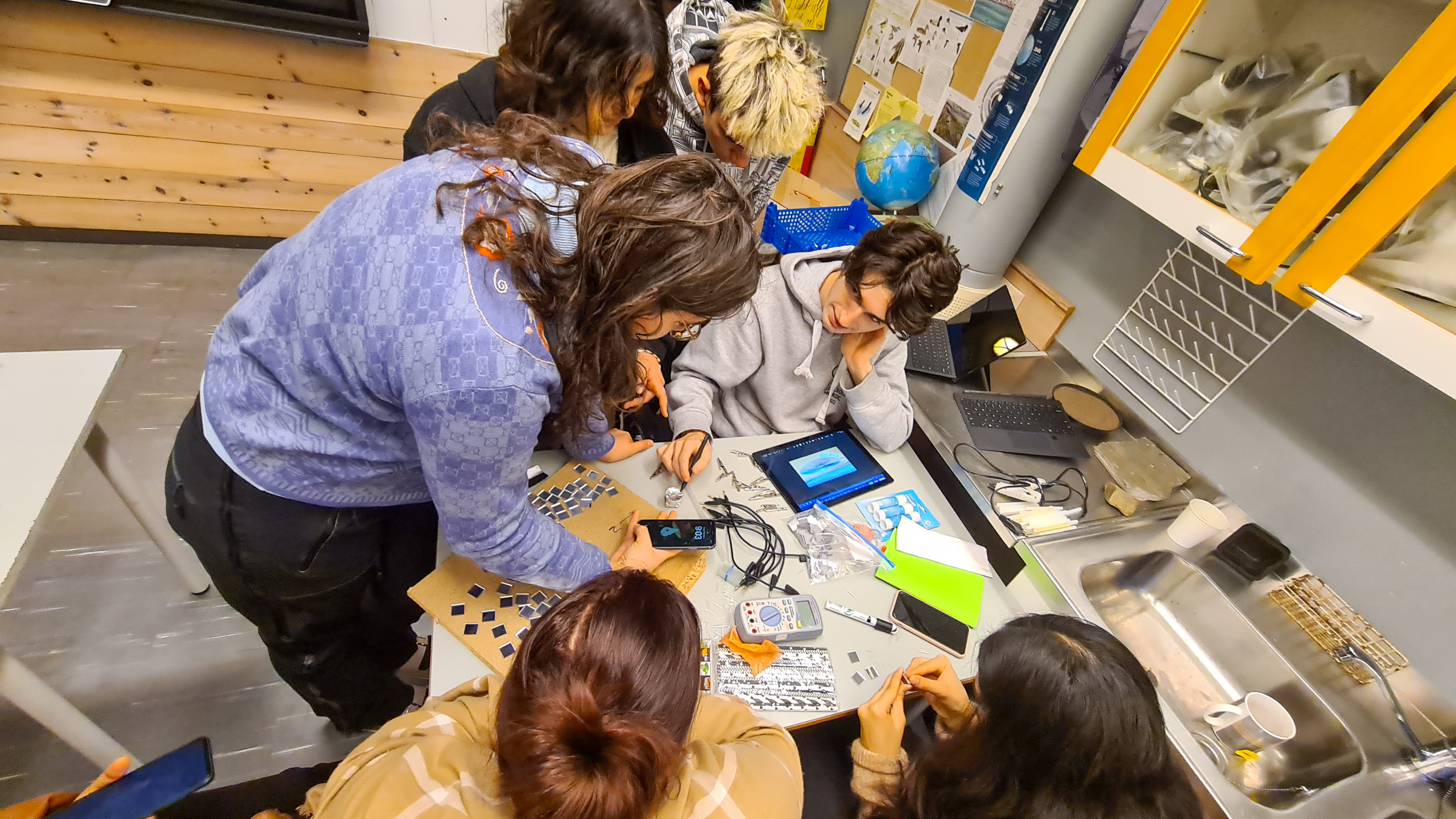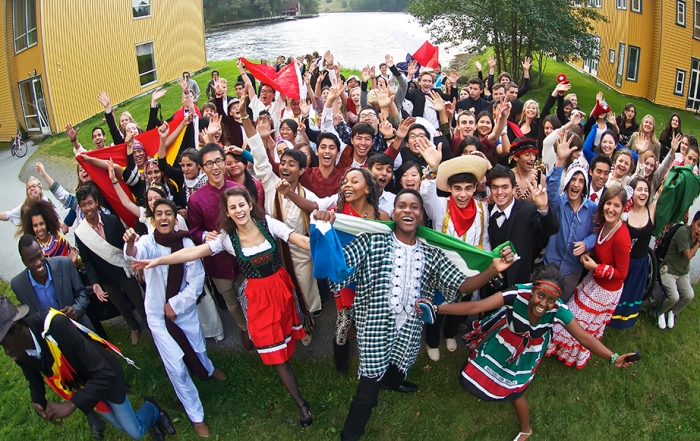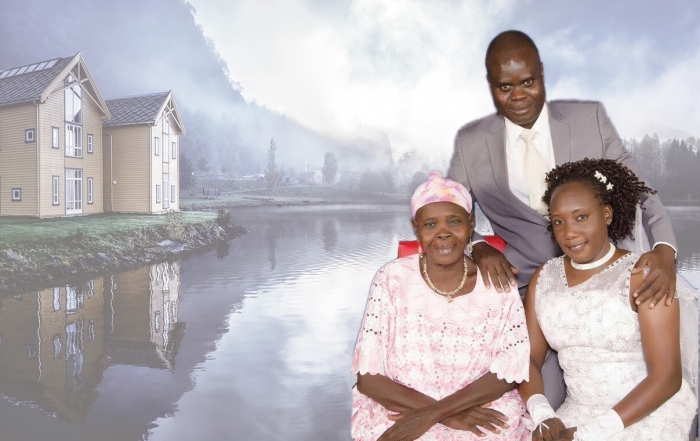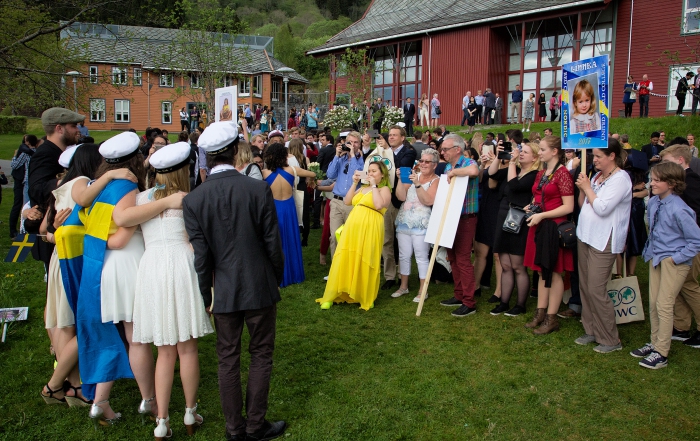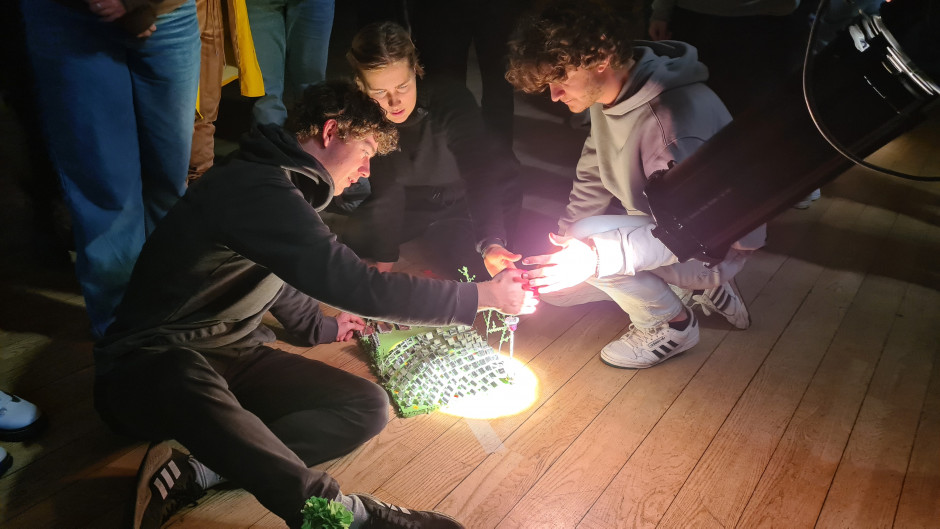 All second-year students who take a science subject have to participate in a project designed to encourage cooperation between the sciences, it is the Group 4 project. The Group 4 project is an element of IB Diploma Program, a significant learning experience where students from different subjects come together and collaborate to carry out a practical project. It is a day that students will surely remember looking back 10 years later. This year they built model solar farms incorporating elements of focusing the light with mirrors, constructing copper oxide-based photovoltaic cells, and using plants. Even though we used a fake sun, being deeply in the dark season in Norway, the effect of the mirrors, when aligned properly, was quite dramatic.
All second-year students who take a science subject have to participate in a project designed to encourage cooperation between the sciences, it is the Group 4 project. The Group 4 project is an element of IB Diploma Program, a significant learning experience where students from different subjects come together and collaborate to carry out a practical project. It is a day that students will surely remember looking back 10 years later. This year they built model solar farms incorporating elements of focusing the light with mirrors, constructing copper oxide-based photovoltaic cells, and using plants. Even though we used a fake sun, being deeply in the dark season in Norway, the effect of the mirrors, when aligned properly, was quite dramatic.
While the second-year students participated in the Group 4 science project, our first years participated in a full day of interdisciplinary classes and workshops. Pairs and groups of teachers designed these workshops to highlight how the subjects we study at UWC RCN can enhance and support one another. Students were grouped with others who studied different subjects, and they explored questions using the ideas and methodologies they learned in their classes.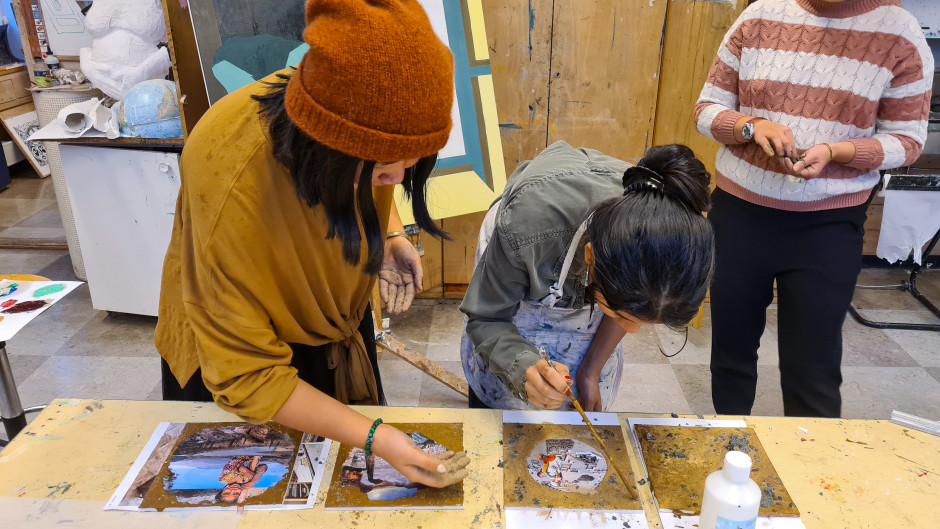
We had nine different workshops; here are some examples:
Environmental values in works of art, explore the human-nature relationship as influenced by culture, religion, and other perspectives.
Ethics of Nordic refugee systems with the Danish Oscar-nominated movie “Flee” and discussion about the current immigration practices in Scandinavia from a philosophical perspective,
A combined Maths and Spanish class, where students explored a recent study by Instituto Cervantes, asserts that nearly 572 million people speak Spanish. Learn functional modeling, regression, interpolation, and extrapolation to analyze trends and predict the Spanish-speaking population worldwide by 2050.
Please read some student reflections about the day:
“I participated in the Art/ESS workshop, Environmental values in works of art. The theme was focused on how art in all its forms can be connected with climate change activism. It is a critical topic, and exploring it from this other point of view was also very interesting. We had the opportunity to create something ourselves with our own hands, any form of art that could be a form of climate activism.
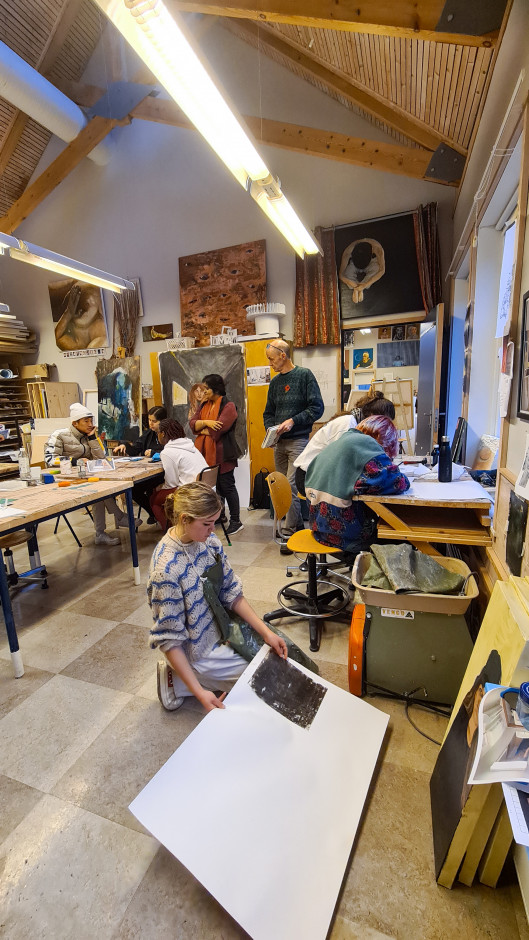 We worked in small groups, and the spirit created was constructive; we had a good discussion about the subject of the work. It was enriching to hear the various group members’ proposals and motivations behind them. It was a fantastic experience.” Sofia Uliana
We worked in small groups, and the spirit created was constructive; we had a good discussion about the subject of the work. It was enriching to hear the various group members’ proposals and motivations behind them. It was a fantastic experience.” Sofia Uliana
“During the interdisciplinary day, I had an opportunity to participate in two workshops: What creates social movements? and Creating meanings with food and drinks. Throughout the first workshop, we explored and compared the issues of gender inequality in different countries through economic data. In the second workshop, we discussed the different meanings that food can represent and learned about other countries’ cuisines, finishing with composing poems about our food-related experiences.” Valeriia Ivanova
“At the ethics of Nordic Refugee Systems workshop, it was remarkable to see and hear how people from similar countries argue and think about the ethics of immigration and refugees was eye-opening and widened my perspective.” Agnes Ulla Margareta Karlsson
Latest News
Jubilee Fund – Support Us
September 2015 marked the 20th anniversary of the opening of UWC Red Cross Nordic and provided us with the opportunity to celebrate the history of the College and its commitment to peace and a sustainable [...]
Justin Tata (’00 – ’02)
As a young boy, I soon had to get used to fleeing from the violence of civil war. For two years, we roomed the jungles. During the day, bombs rained on us, and at nights [...]
Graduation Ceremony 2017
Graduation took place on Saturday 20th May at UWC Red Cross Nordic. It was a pleasure to welcome so many families, host families from our local community and other guests on Friday evening for dinner [...]

